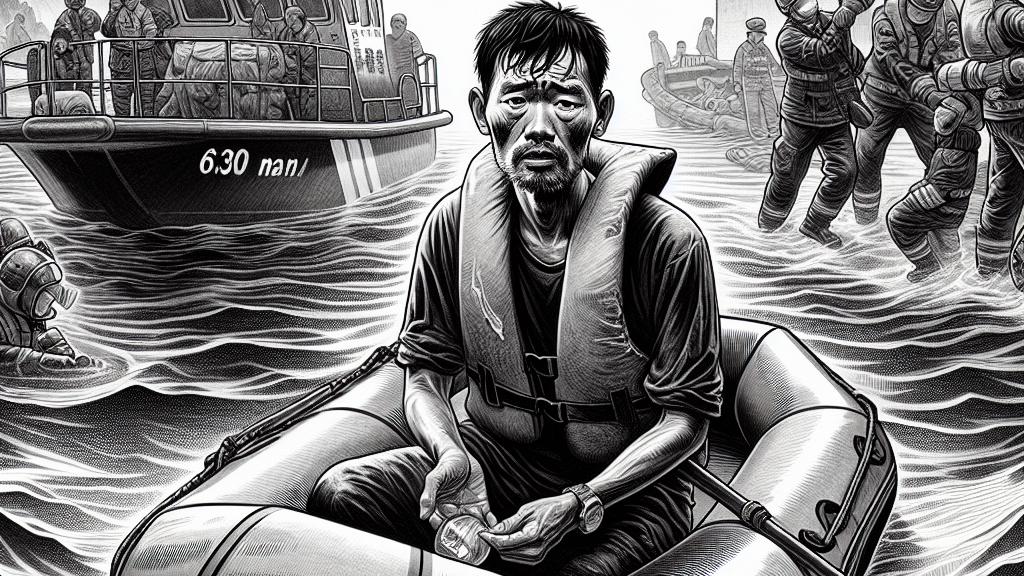Judicial Investigation of Chinese Man Attempting to Enter Taiwan
Overview
- A 30-year-old Chinese man was discovered on a rubber dinghy off the coast of New Taipei, Taiwan.
- He is currently undergoing a judicial investigation following his rescue by local authorities.
- This incident underscores the complexity of Taiwan's strict immigration policies amid escalating tensions with China.

Dramatic Discovery and Rescue
Early on September 14, 2024, an unexpected situation unfolded as the New Taipei Fire Department received alerts about a person in distress. Approximately 6:30 AM, local authorities spotted Wang, a 30-year-old Chinese man, adrift in a small rubber dinghy about 100 meters from shore. Responding swiftly, the Taiwan Coast Guard and firefighters worked together to ensure his safe arrival on land. Upon reaching safety, it became clear that Wang was experiencing severe dehydration, prompting immediate medical attention. During his hospital stay, he conveyed that he had made this perilous journey seeking refuge from crippling debts in China, hoping for a rejuvenation of his life on Taiwanese soil. His harrowing experience serves as a powerful reminder of the lengths individuals may venture for a chance at a better future.
Taiwan’s Stringent Immigration Laws
Taiwan's immigration laws are not just comprehensive; they are meticulously designed to safeguard the nation’s security and sovereignty. Based on Article 10 of the Act Governing Relations Between the People of Taiwan and the Mainland Area, unauthorized entry is a serious offense, bringing with it potentially severe consequences. Individuals like Wang could face hefty fines of up to NT$500,000 (around US$15,648) or even imprisonment for up to five years. These regulations are rigorous and serve as a deterrent, clearly underscoring the gravity with which Taiwan treats border control. Authorities have publicly stated that regulating and managing these entries is imperative for maintaining social order and national integrity, especially in today's politically charged environment.
Wider Context of Cross-Strait Relations
Wang’s plight is emblematic of the broader narrative shaping Taiwan’s precarious position in relation to China. His journey coincides with escalating tensions, especially following Taiwan's recent elections that favored pro-independence sentiments. This has led to increased vigilance regarding border security. For example, the recent detention of Taiwanese fishing vessels by China’s coast guard has highlighted not only the complexities of maritime laws but also the risks facing those who inadvertently cross these politically sensitive lines. As Taiwanese officials balance national security interests with humanitarian concerns, incidents involving illegal entries remind us that beneath the surface of political maneuvering lies the very real human struggle for a better life. Ultimately, Wang's story captivates, illustrating the intricate intersection of personal desires and national policies while shedding light on the poignant realities of immigration in a divided China-Taiwan landscape.

Loading...